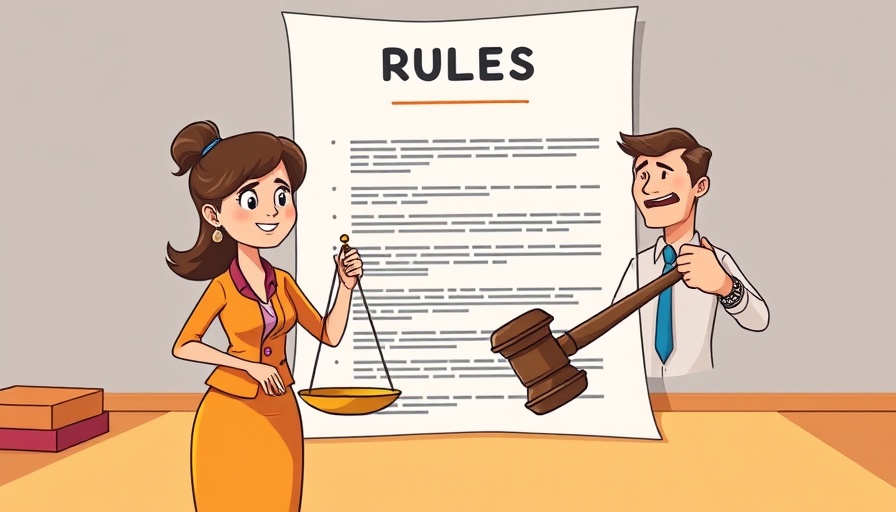
Understanding Google’s Latest Policy Shift: What Does It Mean for Advertisers?
On April 14, 2025, Google is set to enforce a significant update to its "Unfair Advantage" policy that aims to reshape the advertising landscape. This change is designed to regulate how many ads can appear in a single location, ultimately impacting businesses, apps, and sites that rely on Google Ads for visibility. But what does this really entail, and why should advertisers pay attention?
Why Google is Making This Change
Google's latest policy shift aims to enhance auction fairness within its advertising ecosystem. The intention is to curb instances where larger advertisers dominate by occupying multiple ad slots in a single auction. This means that while advertisers can still show multiple ads across different placements, stacking several in a single ad location without hindrance will no longer be permissible.
One crucial phrase from the new policy is “single ad location,” a term that remains up for interpretation and may introduce ambiguity in enforcement. However, addressing these concerns is critical as Google hopes to ensure competition and improve the user experience, which many see as a necessary evolution in its advertising model. Taking steps to protect smaller advertisers enhances Google’s long-term strategy by preventing overcrowding from a few dominant players.
Reactions From the Advertising Community
The immediate response among advertisers has been mixed. Some view the policy as a positive move towards creating a more equitable environment, while others have reservations about the potential implications of this ambiguity. The adjustment aims to balance the scales and give all advertisers a fair chance, but how it ultimately plays out will depend on Google’s implementation and enforcement.
This community buzz demonstrates the mixed feelings around the change. In October, Google had already signaled an intention to separate ad auctions by updating their documentation on ad auctions. This was a precursor that many in the PPC space might have overlooked, hinting that such a decisive change was coming. Advertisers, therefore, have had time to prepare and adjust strategies as this update starts to take shape.
The Broader Implications for the Tech Ecosystem
Beyond the immediate impacts on advertising, this shift can be viewed as part of a broader trend in technology updates, where companies like Google are reevaluating their policies in response to market dynamics. As disruptive technology continues to evolve rapidly, businesses must adapt, not just to existing rules but also to anticipated changes such as this one. This foresight is essential as it aligns with the upward trend observed in March 2025 where technology companies are increasingly prioritizing user experience and competition.
As we move further into the tech landscape of 2025, understanding these updates and shifts in policy will be crucial for businesses, tech innovators, and advertisers alike. Staying informed not only enhances strategic planning but equips all involved with the tools needed to navigate this ongoing evolution effectively.
 Add Row
Add Row  Add
Add 




Write A Comment